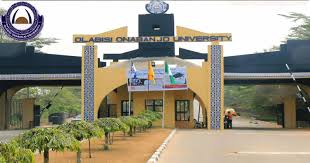Olabisi Onabanjo University (OOU), Ago-Iwoye has made significant strides in its 42 years of existence, shaping the development of skilled professionals across various sectors in Nigeria. According to the Vice-Chancellor, Prof. Ayodeji Agboola, the university has grown from five faculties to 14 and has seen an increase in enrollment from fewer than 300 students to a current count of 30,000.

Speaking about the institution’s progress, Prof. Agboola highlighted key improvements achieved during his tenure. He emphasized infrastructural development, including the addition of courses, and the full digitalization of all programs to promote online learning. Notably, the university has streamlined its administrative processes, ensuring timely conduct of examinations, prompt release of results, and timely disbursement of salaries and pensions.
To address student data management challenges, the Vice-Chancellor initiated measures to accurately track student numbers from admission to graduation. This involved integrating student profiles into a comprehensive management system, linked to examination processes and financial transactions, facilitating transparent communication with students regarding fee payments.
Furthermore, OOU has established collaborations with the National Incubation and Innovation Centre, Abuja, to provide entrepreneurship training for students. It is also finalizing arrangements with the National Institute for Policy and Strategic Studies (NIPSS) and the Federal Ministry of Education for the launch of leadership training through the Awujale Institute of Governance.
Acknowledging the pivotal role of various stakeholders, including the Awujale of Ijebuland, Oba Sikiru Adetona, alumni, and corporate supporters, Prof. Agboola expressed gratitude for their contributions towards the university’s infrastructural development. Their support has propelled OOU to become a prominent institution among its peers in Nigeria.
Looking towards global competitiveness, the university is forging partnerships with foreign universities to offer advanced training opportunities, aiming to equip students with a broader skill set and international exposure. Additionally, the harmonious relationship between the management, staff, and students has ensured a stable academic calendar, enabling students to complete their programs within scheduled timelines.
Recognizing the support from the Governor Dapo Abiodun-led administration, the Vice-Chancellor appealed for continued backing to propel OOU towards global excellence. He also highlighted the establishment of a Reviewing Committee to address the non-academic staff’s conditions of service, aiming to resolve concerns regarding promotion intervals and make further improvements to the university’s operational framework.
As OOU continues to evolve and expand its academic and institutional horizons, these developments serve as a testament to the university’s commitment to delivering quality education and fostering a conducive learning environment for its students and staff.




